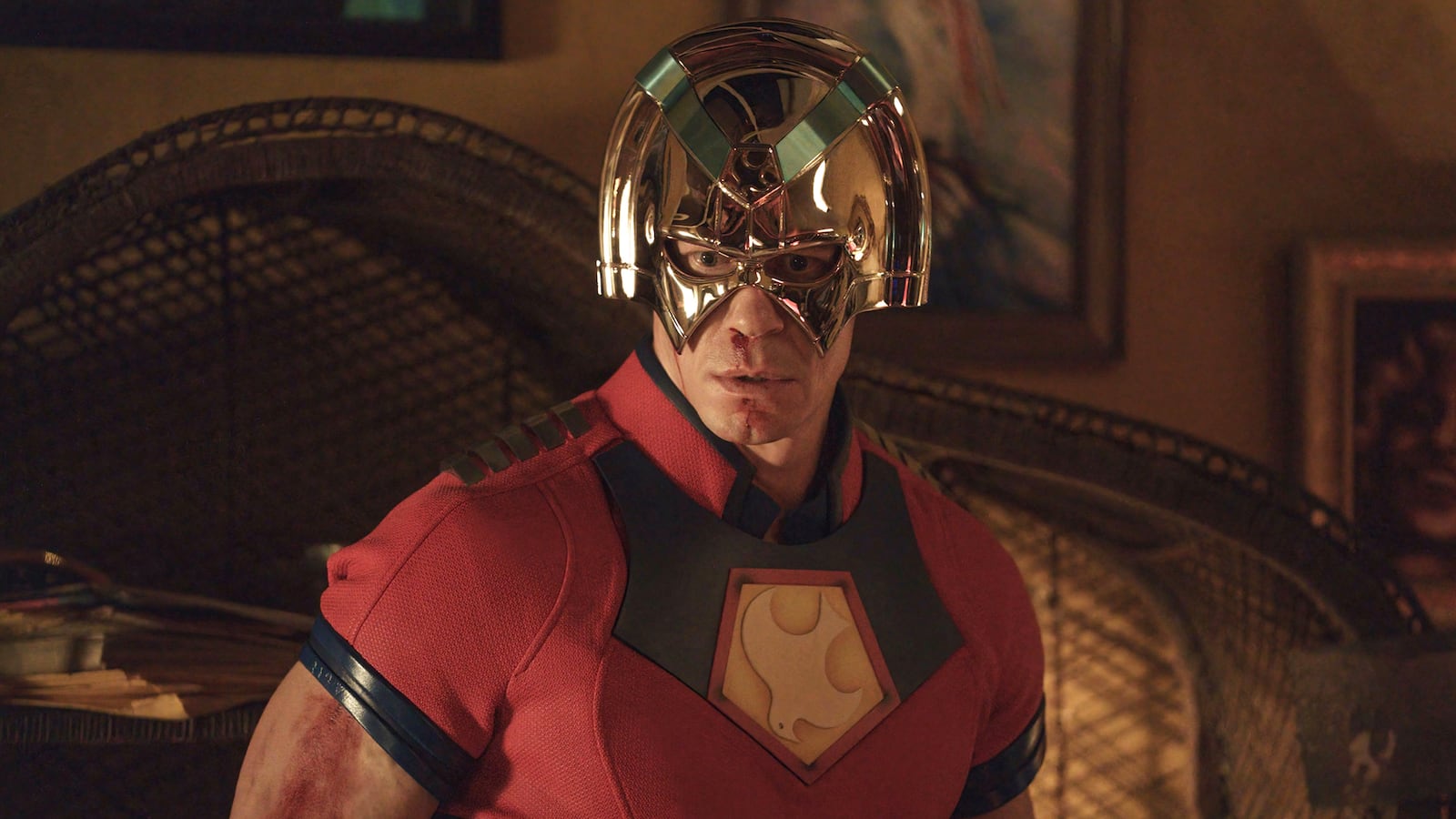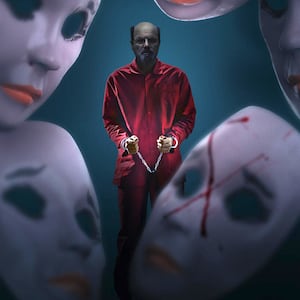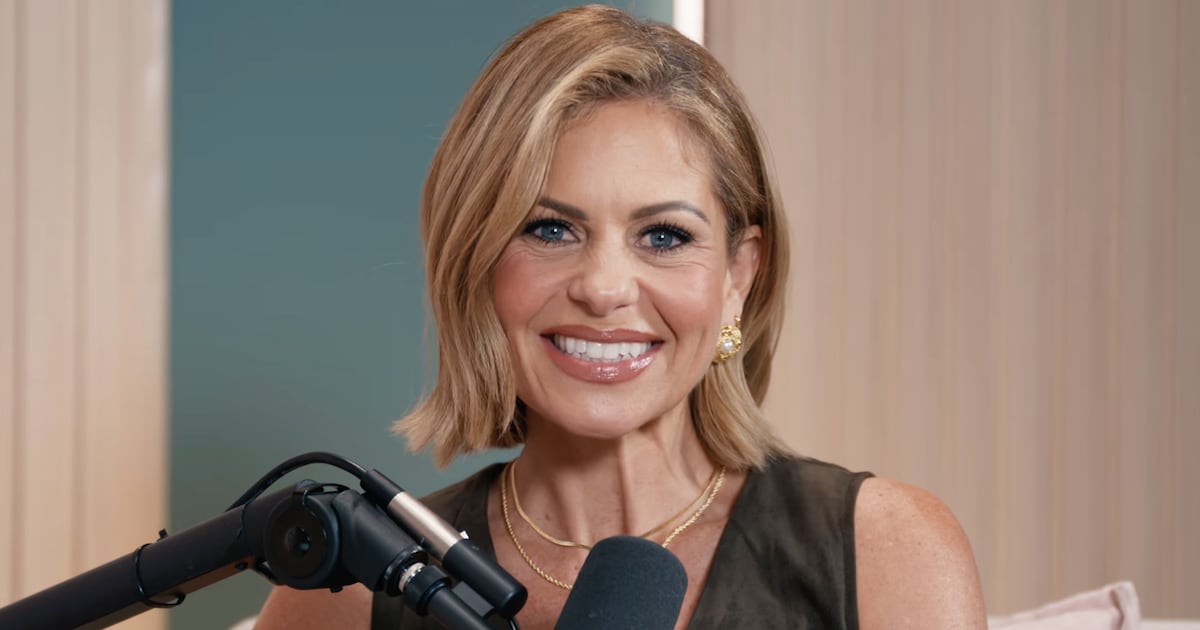John Cena has a lunkheaded charm that serves him exceptionally well in Peacemaker, writer/director James Gunn’s spin-off from his 2021 superhero sequel The Suicide Squad. As its title implies, Gunn’s eight-episode HBO Max series (Jan. 13) focuses on Cena’s patriotic psychopath, whose ironic ethos is summed up by his feature-film proclamation, “I cherish peace with all my heart. I don’t care how many men, women and children I need to kill to get it.” A contract murderer whom everyone considers a racist even though he views himself as a good guy, Cena’s Peacemaker is a homicidal hot-button antihero for our fake news and white nationalist-infested age, and in the hands of Gunn, he turns out to be the focal point of a profanely absurd saga that—in terms of laughs and drama—far exceeds its big-screen predecessor.
Peacemaker begins in the aftermath of The Suicide Squad’s conclusion, with Christopher Smith, aka Peacemaker, ready to leave the hospital after surviving a near-fatal gunshot wound courtesy of Bloodsport (Idris Elba), one of his Suicide Squad comrades, who was seeking retaliation for Peacemaker killing team leader Rick Flag (Joel Kinnaman). Since he still has an explosive in his head and years left on a jail sentence, Peacemaker winds up once again forced to work for Amanda Waller (Viola Davis), albeit by proxy, since she assigns him to Murn (Chukwudi Iwuji) and a crew that includes Waller’s own traitorous employees Emilia Harcourt (Jennifer Holland) and John Economos (Steve Agee), as well as newbie Leota Adebayo (Danielle Brooks). Their mission, which they have no choice but to accept, is to track down and assassinate a series of targets known as “butterflies” that pose an imminent danger to the country, beginning with a U.S. senator.
The mysterious nature of this butterfly threat is teased throughout Peacemaker’s early episodes, all as Gunn—who wrote each installment, and directed five—concentrates on the screwy condition of Peacemaker, whose dumpy trailer-park home and Ford Comet are both decorated with the Stars and Stripes, and whose best friend is a pet bald eagle named Eagly. That bird’s affection for Peacemaker is of a ridiculous variety—he brings his master the critters he kills, and even hugs him at one point—and it more than lightly rankles Vigilante (Freddie Stroma), a costumed local kid who’s more kill-crazy than his idol Peacemaker. Gunn’s gift at lunatic-moron banter is most evident in Peacemaker and Vigilante’s back-and-forths, with the two ultra-violent nitwits routinely arguing about nonsense with gusto, and their brotherly rapport proves to be the show’s most consistent source of comedy.
Peacemaker’s set-up initially suggests a liberal-conservative dynamic in which Leota, a Black lesbian woman, will be the critical contrast to Peacemaker’s right-wing intolerance. Yet while that tension does sporadically materialize, Gunn thankfully eschews such an easy-bake scenario in favor of making Leota and Peacemaker unlikely allies, with the former quickly deducing that the latter is less an inherently evil bigot than a misguided buffoon whose worldview was warped by his father Auggie (Robert Patrick). The show itself bears that out, softening Peacemaker’s madness by casting it as the byproduct of an upbringing with a racist conspiracy-theorist dad who trained Peacemaker, as well as makes his weapons and shiny chrome super-helmets in a weird “quantum unfolding storage area” room in his house. Even without the eventual revelations about Auggie’s true horridness, his every interaction with his son is so abusive and nasty that the show elicits immediate sympathy for the led-astray Peacemaker.
From its fantastic dance-routine credit sequence (set to Wig Wam’s “Do Ya Wanna Taste It”) to its overstuffed soundtrack featuring cuts from Cinderella, Hanoi Rocks and Mötley Crüe, Peacemaker—the show, and the character—has a gung-ho glam-rock spirit. Momentum is central to the series, whose episodes never top 50 minutes, and whose story zips along with the same freewheeling energy that characterizes its dialogue. Pop-culture references abound, never more so than in an extended Peacemaker rant about all of the notable people John might have framed for a particular crime (“Bill Cosby—he just got out, he’s got time on his hands!”). Gunn also makes sure to have his protagonist derisively mock his fellow superheroes, including Aquaman (who apparently pays to have sex with aquarium fish), Batman (who’s responsible for countless innocent deaths because he refuses to just kill the Joker once and for all), and Superman (who supposedly has a poop fetish). The source of Peacemaker’s demented facts? Facebook and Google, of course.
Gunn takes aim at easy targets but refuses to make Peacemaker a vehicle for sermonizing, instead using of-the-moment cultural topics as amusing embellishments. The series’ guiding aim is delivering off-kilter R-rated bedlam with a dash of character drama involving Peacemaker, whose mounting introspection begets a crisis of confidence and purpose that complicates both his mission and his feelings about his hatemonger father. Cena’s unhinged performance (replete with singing and dancing) is thus the lynchpin of the entire endeavor, straddling the line between cartoonish viciousness, stunted-adolescent bro boorishness, and damaged-soul kindness. He’s a dysfunctional macho military action figure come to life, and the actor manages the impressive feat of maintaining Peacemaker’s inherent over-the-top idiocy while simultaneously peeling back layers to reveal his grief, resentment, and guilt.
Though Auggie is a virulent neo-Nazi who spouts ugly barbs at any minority he meets (including Annie Chang’s Detective Sophie Song), his belief that the country is being run by a shadowy deep state cabal turns out to be generally close to the truth in Peacemaker, whose underlying conspiracy theory is slowly exposed as Peacemaker works to take out the mysterious butterflies. More compelling than the specifics of that plot, however, is the camaraderie shared by Peacemaker, Leota, and the rest of their troop. Gunn carves out distinctive dispositions and hang-ups for all of his primary players, the better to have them clash with each other in various mix-and-match combinations, creating a lively and combative atmosphere of extremist superhero mayhem. Self-conscious but never smug, sociopathic and yet also sweet, and timely if never preachy, it’s the very sort of no-holds-barred, tongue-in-cheek endeavor that’s become Gunn’s specialty.







